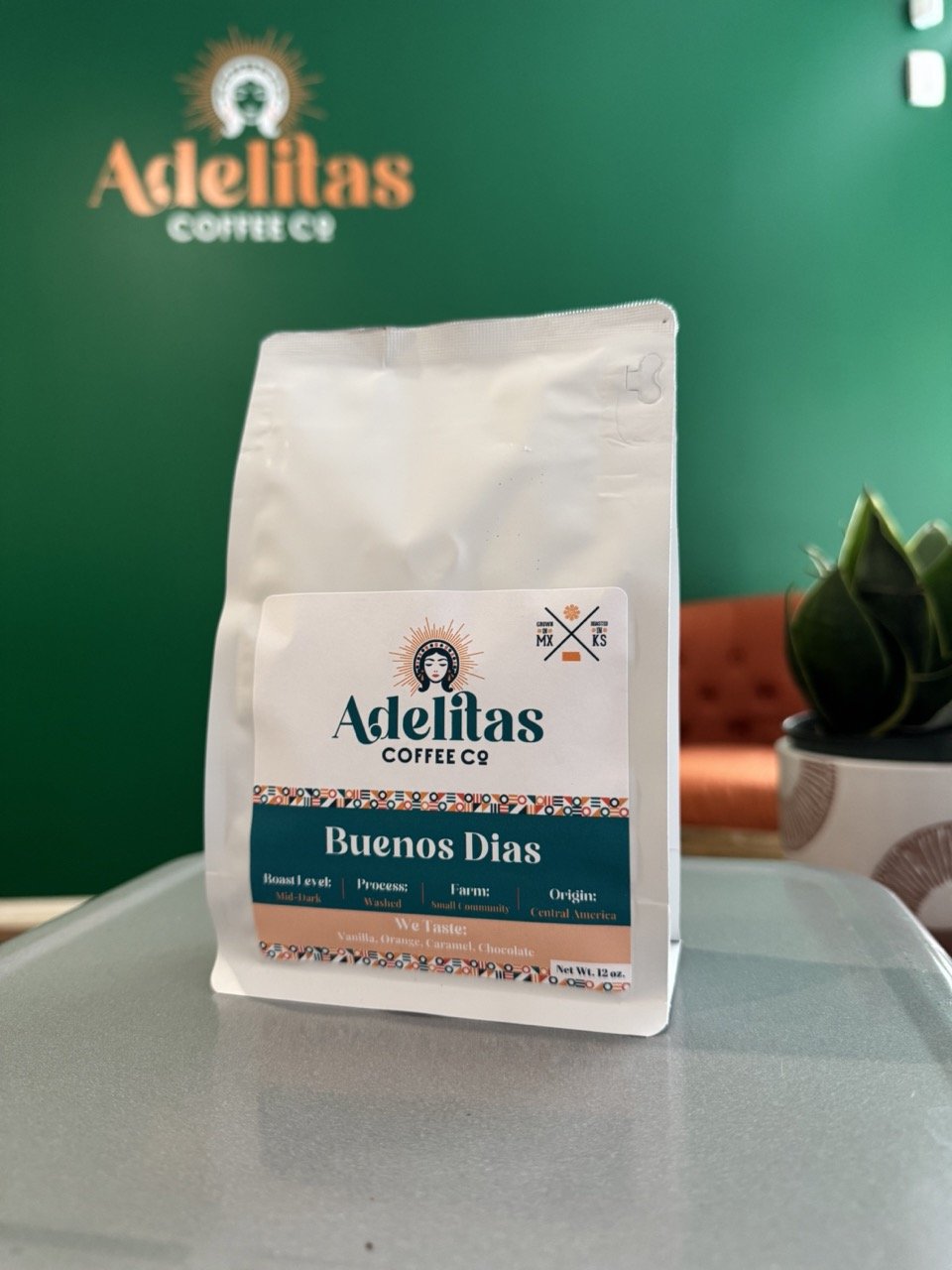Buenos Dias
central america
process method: washed
organic
roast style: mid-dark
roaster tasting notes: Cherry, Peanut Butter, Chocolate
Medium-bodied coffee, cups with smooth citrus and cherry tones and hints of sweet chocolate.
Great For an every day cup of cafecito drip or potential espresso.
Buenos Dias Cafecito sources its coffee from Cuerno, a local cooperative nestled amidst rugged terrain. The cooperative’s farms are accessible only by a four-hour mule ride, yet they yield exceptional beans. What sets CUERNO apart is its use of decentralized wet mills, resulting in a delightful and variable coffee experience. This blend captures the essence of isolation, brewed for the world, and proudly holds a Certified Organic label. It’s thoughtfully blended with Cooperativa Agrícola Cafetalera San Juan.
San Juan, where the cooperative operates, has a rich coffee history. In the mid-2000s, Bolivia hosted annual Cup of Excellence competitions, drawing international interest to the Yungas coffee sector, with Caranaví at its heart. San Juan relies on individual farmers to process their own coffee, and one notable addition to the cooperative was Felix Chambi Garcia. With over 16 years of specialty experience as a cupper and a member of various other Bolivian cooperatives, Felix has significantly elevated the coop’s total production, overall quality, and coffee diversity.
Felix represents the younger, renewed generation of coffee enthusiasts in Bolivia, including baristas and roasters. They recognize the immense potential of their producing country. Quality control is central to the coop’s operations, and Felix’s lab in Alto Cochabamba serves as the hub for lot building and exportation. Parchment lots that don’t meet the minimum requirements are sold domestically rather than being marketed abroad. Harvesting follows a common protocol: ripe coffee cherries are carefully picked, sorted by density, depulped using small mechanical depulpers, and then fermented for 18-24 hours. Once fermentation is complete, the parchment undergoes thorough washing in narrow basins and is sun-dried on raised screen beds.
central america
process method: washed
organic
roast style: mid-dark
roaster tasting notes: Cherry, Peanut Butter, Chocolate
Medium-bodied coffee, cups with smooth citrus and cherry tones and hints of sweet chocolate.
Great For an every day cup of cafecito drip or potential espresso.
Buenos Dias Cafecito sources its coffee from Cuerno, a local cooperative nestled amidst rugged terrain. The cooperative’s farms are accessible only by a four-hour mule ride, yet they yield exceptional beans. What sets CUERNO apart is its use of decentralized wet mills, resulting in a delightful and variable coffee experience. This blend captures the essence of isolation, brewed for the world, and proudly holds a Certified Organic label. It’s thoughtfully blended with Cooperativa Agrícola Cafetalera San Juan.
San Juan, where the cooperative operates, has a rich coffee history. In the mid-2000s, Bolivia hosted annual Cup of Excellence competitions, drawing international interest to the Yungas coffee sector, with Caranaví at its heart. San Juan relies on individual farmers to process their own coffee, and one notable addition to the cooperative was Felix Chambi Garcia. With over 16 years of specialty experience as a cupper and a member of various other Bolivian cooperatives, Felix has significantly elevated the coop’s total production, overall quality, and coffee diversity.
Felix represents the younger, renewed generation of coffee enthusiasts in Bolivia, including baristas and roasters. They recognize the immense potential of their producing country. Quality control is central to the coop’s operations, and Felix’s lab in Alto Cochabamba serves as the hub for lot building and exportation. Parchment lots that don’t meet the minimum requirements are sold domestically rather than being marketed abroad. Harvesting follows a common protocol: ripe coffee cherries are carefully picked, sorted by density, depulped using small mechanical depulpers, and then fermented for 18-24 hours. Once fermentation is complete, the parchment undergoes thorough washing in narrow basins and is sun-dried on raised screen beds.
central america
process method: washed
organic
roast style: mid-dark
roaster tasting notes: Cherry, Peanut Butter, Chocolate
Medium-bodied coffee, cups with smooth citrus and cherry tones and hints of sweet chocolate.
Great For an every day cup of cafecito drip or potential espresso.
Buenos Dias Cafecito sources its coffee from Cuerno, a local cooperative nestled amidst rugged terrain. The cooperative’s farms are accessible only by a four-hour mule ride, yet they yield exceptional beans. What sets CUERNO apart is its use of decentralized wet mills, resulting in a delightful and variable coffee experience. This blend captures the essence of isolation, brewed for the world, and proudly holds a Certified Organic label. It’s thoughtfully blended with Cooperativa Agrícola Cafetalera San Juan.
San Juan, where the cooperative operates, has a rich coffee history. In the mid-2000s, Bolivia hosted annual Cup of Excellence competitions, drawing international interest to the Yungas coffee sector, with Caranaví at its heart. San Juan relies on individual farmers to process their own coffee, and one notable addition to the cooperative was Felix Chambi Garcia. With over 16 years of specialty experience as a cupper and a member of various other Bolivian cooperatives, Felix has significantly elevated the coop’s total production, overall quality, and coffee diversity.
Felix represents the younger, renewed generation of coffee enthusiasts in Bolivia, including baristas and roasters. They recognize the immense potential of their producing country. Quality control is central to the coop’s operations, and Felix’s lab in Alto Cochabamba serves as the hub for lot building and exportation. Parchment lots that don’t meet the minimum requirements are sold domestically rather than being marketed abroad. Harvesting follows a common protocol: ripe coffee cherries are carefully picked, sorted by density, depulped using small mechanical depulpers, and then fermented for 18-24 hours. Once fermentation is complete, the parchment undergoes thorough washing in narrow basins and is sun-dried on raised screen beds.


